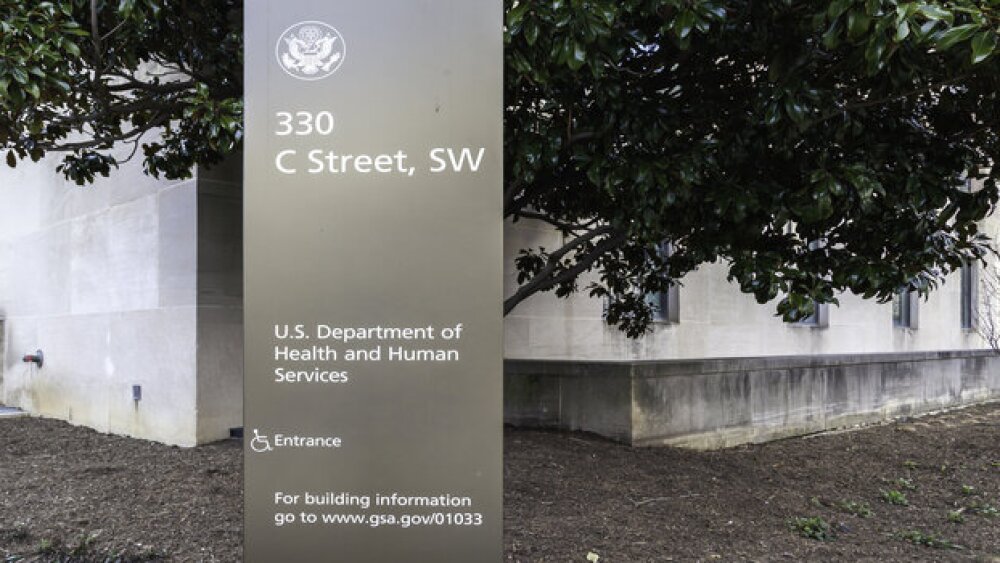The U.S. government has requested that a Delaware federal judge deny an AstraZeneca motion for summary judgement in its Inflation Reduction Act case, arguing that the company’s core claims are meritless.
Pictured: Department of Health and Human Services sign at its office in Washington, DC/iStock, JHVEPhoto
The Department of Health and Human Services on Wednesday filed its opposition to AstraZeneca’s motion for summary judgement in a legal case regarding the Inflation Reduction Act’s Drug Price Negotiation Program.
AstraZeneca filed its lawsuit against HHS in August 2023 calling into question a guidance document from the Centers for Medicare and Medicaid Services (CMS), which outlines the selection criteria for medicines that would be affected by the first round of drug price negotiations. The company filed a motion for summary judgement in September 2023.
The British drugmaker challenged the CMS definition of “qualifying single source drug,” which the agency interprets to encompass “all dosage forms and strengths of any drug marketed by the manufacturer with the same active moiety or ingredient.”
AstraZeneca argued in its legal filing that “whether a drug constitutes its own Qualifying Single Source Drug depends on whether it has been approved under a separate New Drug Application (NDA) or licensed under a separate Biologics License Application (BLA).”
The company also contested the CMS “bona fide marketing” requirement, which it contends “sweeps drugs into the selection process even when they have generic competition.”
In its 67-page response to AstraZeneca’s claims, the government’s counsel pointed out that “even if CMS had made both of Plaintiffs’ preferred interpretive choices, that would have had no effect on the inclusion of AstraZeneca’s drug Farxiga among the drugs CMS selected for negotiation.”
CMS released the list of the first 10 drugs that would be affected by the drug price negotiations in August 2023, which includes AstraZeneca’s heart failure and diabetes therapy Farxiga (dapagliflozin).
The U.S. government has argued that AstraZeneca’s legal challenge “ultimately comes down to a disagreement about policy” regarding the passage of the IRA. President Joe Biden signed the IRA into law in August 2022, with the goal of generating some $25 billion in drug cost savings over the next eight years.
According to Wednesday’s HHS filing, going with AstraZeneca’s interpretation of what constitutes a “qualifying single source drug” would open the IRA up to “gamesmanship” from industry players, who could potentially attempt to side-step the negotiation program by shifting their production over to another product with the same active ingredient but is under a different NDA or BLA.
“Permitting such gamesmanship is neither required by the IRA nor consistent with congressional intent,” the filing states. “And CMS’s decision to minimize incentives for manufacturers to engage in such behavior is neither arbitrary nor capricious.”
Several pharmaceutical companies have filed lawsuits seeking to block the drug negotiation program, including Merck, BMS and J&J.
Tristan Manalac is an independent science writer based in Metro Manila, Philippines. He can be reached at tristan@tristanmanalac.com or tristan.manalac@biospace.com.






